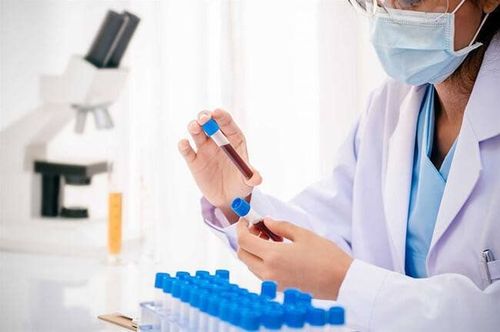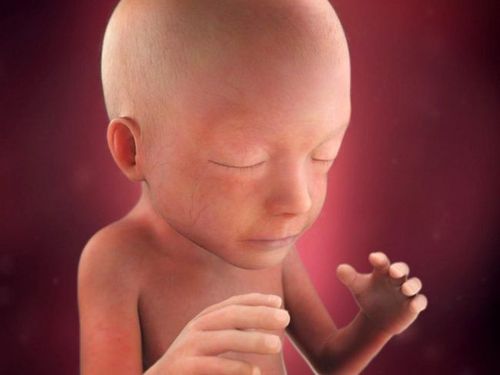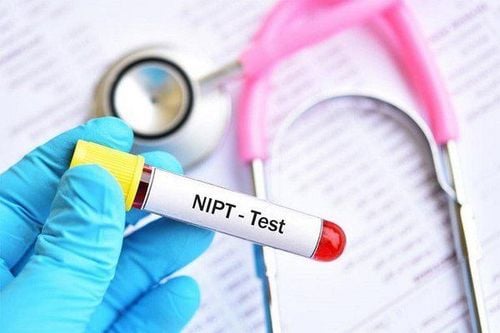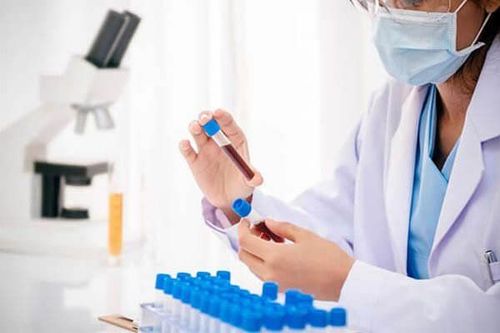This is an automatically translated article.
Article written by Doctor Do Huy Duong - Vinmec High-Tech Center
Diagnosis of preimplantation embryos for chromosomal abnormalities helps to reduce the risk of pregnancy with genetic abnormalities related to chromosomal structure. This test increases the chances of a healthy and successful pregnancy for women who already have structural chromosomal abnormalities.
Pre-implantation genetic testing for Chromosomal structural rearrangements (PGT-SR) is a genetic test performed on embryo samples to reduce the risk of pregnancy with Genetic abnormalities related to chromosome structure.
Chromosome structural abnormalities are structural changes related to size or rearrangement within chromosomes. Carriers of chromosomal abnormalities are at risk of developing embryos with incorrect amounts of genetic material and at high risk of failure to conceive.
For parents who already carry chromosomal abnormalities, the PGT-SR test will increase your chances of having a healthy and successful pregnancy. PGT-SR helps to detect chromosomal structural abnormalities. From there, select good embryos with no abnormalities to transfer.
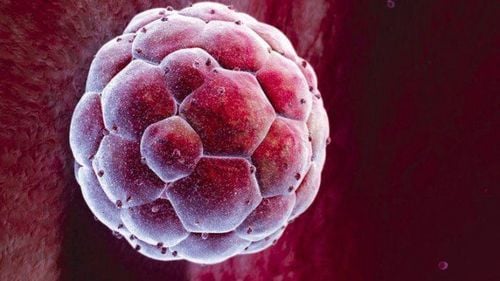
Xét nghiệm PGT-SR giúp sàng lọc ra các phôi tốt không có bất thường
Diagnosis of preimplantation embryos for chromosomal abnormalities is suitable for which subjects?
PGT-SR is suitable for patients who already carry structural chromosomal abnormalities. PGT-SR is also considered indicated for parents who have had a child with a chromosomal abnormality or a parent is a carrier of one of the following abnormalities:
Inversion Reciprocal translocation Translocation Robertson Reciprocal Translocation:
Mutual translocation occurs when parts of two different chromosomes are split and swap places. Patients carrying balanced translocations are embryogenic with the same type of balanced translocation or carrying unequal or completely normal translocations.
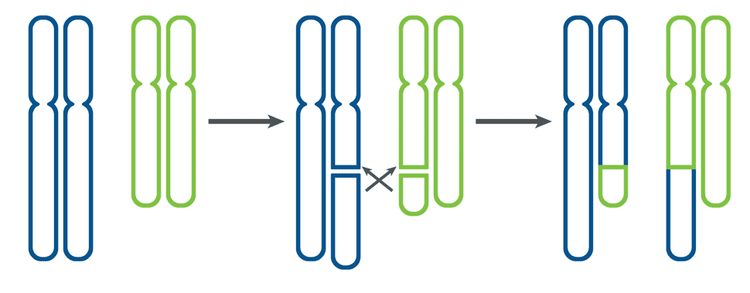
Chuyển đoạn tương hỗ
Robertson translocation:
Robertson translocation occurs when two chromosomes join together to form one large chromosome. This reduces the number of chromosomes in the cell to 45 instead of 46. This condition often occurs with chromosome pairs 13/14 and 14/21 leading to the most common abnormality called Down syndrome due to translocation. segment, trisomy 13 or uniparental disomy (UPD).
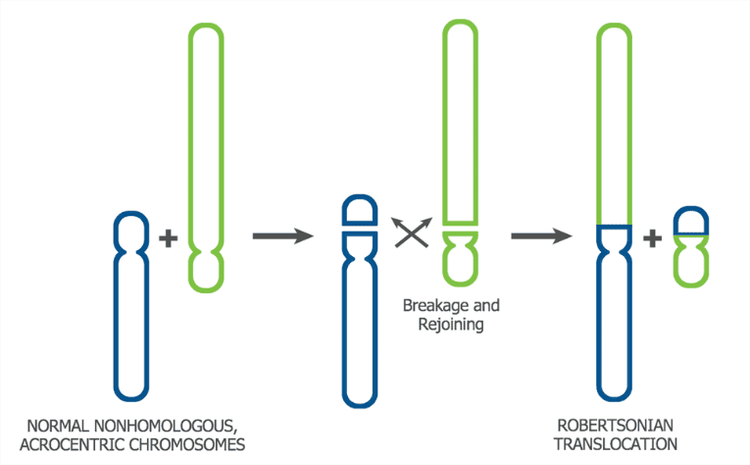
Chuyển đoạn Robertson
Inversion:
Inversion is the rearrangement of segments within the same chromosome. The inversion region may or may not contain a centromere, producing two types of inversions, pericentromeric and proximal, respectively. Patients with inversions may develop embryos with an abnormal pattern of deletions or extra chromosomes.
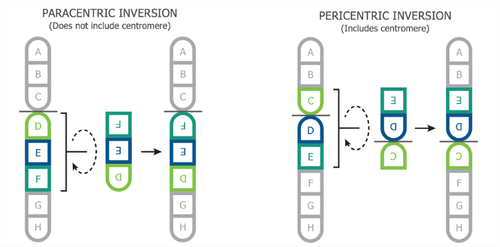
Đảo đoạn
Currently, Vinmec International General Hospital is providing a Genetic Screening Service Package before embryo transfer to identify genetic abnormalities at the chromosomal level, thereby selecting the best embryos before embryo transfer. This test will help the client:
Increase implantation and IVF success rate Reduce number of IVF attempts Increase success rate of single embryo transfer Increase success rate in older women, especially over 35 years old
Please dial HOTLINE for more information or register for an appointment HERE. Download MyVinmec app to make appointments faster and to manage your bookings easily.
Reference source: coopergenomics.com



